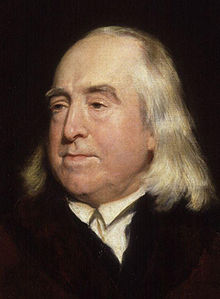Portal:Liberalism
The Liberalism portal
Liberalism is a political and moral philosophy based on the rights of the individual, liberty, consent of the governed, political equality, right to private property and equality before the law. Liberals espouse various and often mutually warring views depending on their understanding of these principles but generally support private property, market economies, individual rights (including civil rights and human rights), liberal democracy, secularism, rule of law, economic and political freedom, freedom of speech, freedom of the press, freedom of assembly, and freedom of religion, constitutional government and privacy rights. Liberalism is frequently cited as the dominant ideology of modern history.
Liberalism became a distinct movement in the Age of Enlightenment, gaining popularity among Western philosophers and economists. Liberalism sought to replace the norms of hereditary privilege, state religion, absolute monarchy, the divine right of kings and traditional conservatism with representative democracy, rule of law, and equality under the law. Liberals also ended mercantilist policies, royal monopolies, and other trade barriers, instead promoting free trade and marketization. Philosopher John Locke is often credited with founding liberalism as a distinct tradition based on the social contract, arguing that each man has a natural right to life, liberty and property, and governments must not violate these rights. While the British liberal tradition has emphasized expanding democracy, French liberalism has emphasized rejecting authoritarianism and is linked to nation-building. (Full article...)
Selected article -
Liberalism, the belief in freedom, equality, democracy and human rights, is historically associated with thinkers such as John Locke and Montesquieu, and with constitutionally limiting the power of the monarch, affirming parliamentary supremacy, passing the Bill of Rights and establishing the principle of "consent of the governed". The 1776 Declaration of Independence of the United States founded the nascent republic on liberal principles without the encumbrance of hereditary aristocracy—the declaration stated that "all men are created equal and endowed by their creator with certain unalienable rights, among these life, liberty, and the pursuit of happiness". A few years later, the French Revolution overthrew the hereditary aristocracy, with the slogan "liberty, equality, fraternity" and was the first state in history to grant universal male suffrage. The Declaration of the Rights of Man and of the Citizen, first codified in 1789 in France, is a foundational document of both liberalism and human rights, itself based on the U.S. Declaration of Independence written in 1776. The intellectual progress of the Enlightenment, which questioned old traditions about societies and governments, eventually coalesced into powerful revolutionary movements that toppled what the French called the Ancien Régime, the belief in absolute monarchy and established religion, especially in Europe, Latin America and North America.
William Henry of Orange in the Glorious Revolution, Thomas Jefferson in the American Revolution and Lafayette in the French Revolution used liberal philosophy to justify the armed overthrow of what they saw as tyrannical rule. The 19th century saw liberal governments established in nations across Europe, South America and North America. In this period, the dominant ideological opponent of classical liberalism was conservatism, but liberalism later survived major ideological challenges from new opponents, such as fascism and communism. Liberal government often adopted the economic beliefs espoused by Adam Smith, John Stuart Mill and others, which broadly emphasized the importance of free markets and laissez-faire governance, with a minimum of interference in trade. (Full article...)Selected biography -

Jeremy Bentham (/ˈbɛnθəm/; 4 February 1747/8 O.S. [15 February 1748 N.S.] – 6 June 1832) was an English philosopher, jurist, and social reformer regarded as the founder of modern utilitarianism.
Bentham defined as the "fundamental axiom" of his philosophy the principle that "it is the greatest happiness of the greatest number that is the measure of right and wrong." He became a leading theorist in Anglo-American philosophy of law, and a political radical whose ideas influenced the development of welfarism. He advocated individual and economic freedoms, the separation of church and state, freedom of expression, equal rights for women, the right to divorce, and (in an unpublished essay) the decriminalising of homosexual acts. He called for the abolition of slavery, capital punishment, and physical punishment, including that of children. He has also become known as an early advocate of animal rights. Though strongly in favour of the extension of individual legal rights, he opposed the idea of natural law and natural rights (both of which are considered "divine" or "God-given" in origin), calling them "nonsense upon stilts". Bentham was also a sharp critic of legal fictions. (Full article...)List of selected biographies
|
|---|
Selected quote
General images
Subcategories
Related portals
WikiProjects
Topics
Recognized content
Associated Wikimedia
The following Wikimedia Foundation sister projects provide more on this subject:
-
Commons
Free media repository -
Wikibooks
Free textbooks and manuals -
Wikidata
Free knowledge base -
Wikinews
Free-content news -
Wikiquote
Collection of quotations -
Wikisource
Free-content library -
Wikiversity
Free learning tools -
Wiktionary
Dictionary and thesaurus


























































